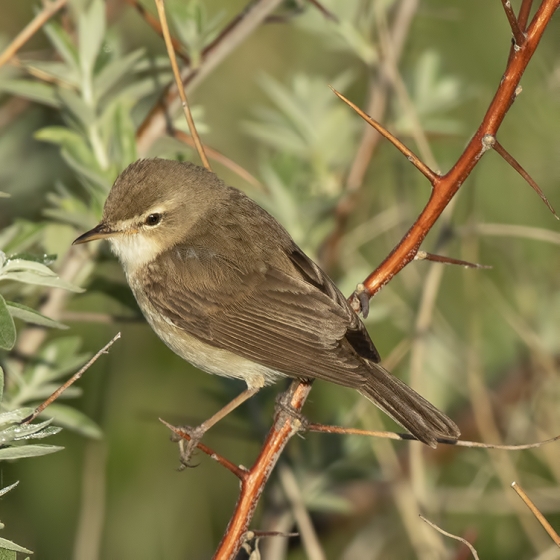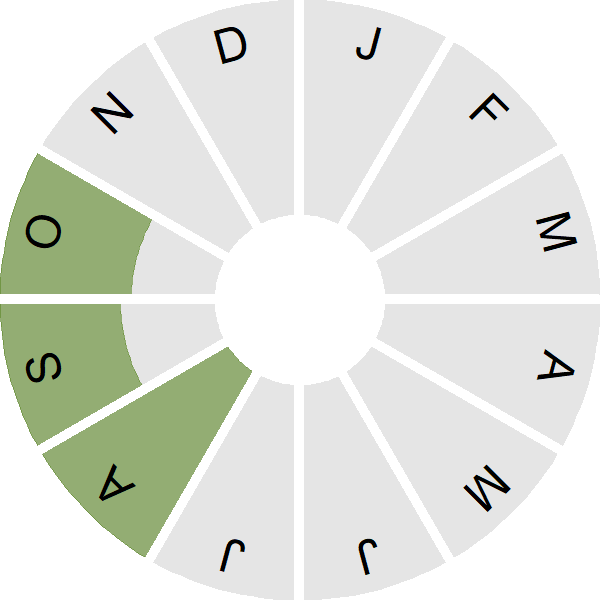Booted Warbler

Introduction
This undistinguished medium-sized warbler normally winters in India, but is a rare annual visitor from Russia.
Scottish and east coast records tend to fall in the autumn (August to September), while south coast birds show a wider spread across the year.

Key Stats
Status and Trends
Conservation Status
Population Size
Population Change
Population trends of this scarce species are not routinely monitored.
Distribution
This vagrant is too rarely reported to map distribution.
European Distribution Map
Distribution Change
This vagrant is too rarely reported to map distribution change.
Seasonality
Booted Warbler is a rare vagrant typically recorded in September and October.
Weekly pattern of occurrence
The graph shows when the species is present in the UK, with taller bars indicating a higher likelihood of encountering the species in appropriate regions and habitats.

Movement
Britain & Ireland movement
Foreign locations of birds ringed or recovered in Britain & Ireland
Dots show the foreign destinations of birds ringed in Britain & Ireland, and the origins of birds ringed overseas that were subsequently recaptured, resighted or found dead in Britain & Ireland. Dot colours indicate the time of year that the species was present at the location.
- Winter (Nov-Feb)
- Spring (Mar-Apr)
- Summer (May-Jul)
- Autumn (Aug-Oct)

Biology
Survival and Longevity
Survival is shown as the proportion of birds surviving from one year to the next and is derived from bird ringing data. It can also be used to estimate how long birds typically live.
View number ringed each year in the Online Ringing Report.
Classification, names and codes
Classification and Codes
- Order: Passeriformes
- Family: Acrocephalidae
- Scientific name: Iduna caligata
- Authority: MHK Lichtenstein, 1823
- BTO 2-letter code: DM
- BTO 5-letter code: BOOWA
- Euring code number: 12561
Alternate species names
- Catalan: busqueta asiàtica
- Czech: sedmihlásek malý
- Danish: Lille Gulbug
- Dutch: Kleine Spotvogel
- Estonian: väike-käosulane
- Finnish: pikkukultarinta
- French: Hypolaïs bottée
- German: Buschspötter
- Hungarian: kis geze
- Icelandic: Glapsöngvari
- Italian: Canapino asiatico
- Latvian: klusais kaukis
- Lithuanian: mažoji tošinuke
- Norwegian: Tartarsanger
- Polish: zaganiacz maly
- Portuguese: felosa-calçada
- Slovak: sedmohlások malý
- Slovenian: mali vrtnik
- Spanish: Zarcero escita
- Swedish: stäppsångare
- Welsh: Telor Bacsiog

